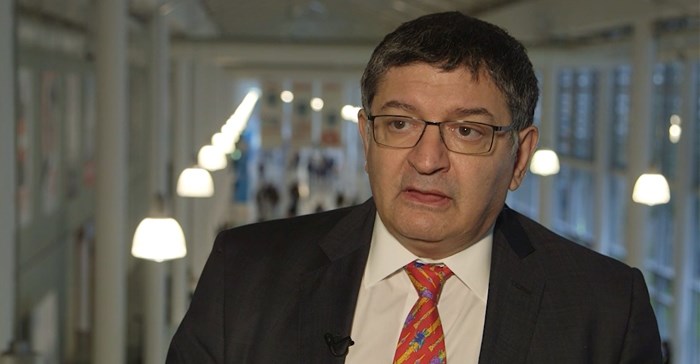Breakthroughs in immuno-oncology provide new treatment options

The development of immunotherapy treatment for cancer patients is progressing rapidly, and more patients are experiencing remarkable responses to these treatments that allow them to lead longer, healthier lives.
“At present, 95% of treatments in clinical trials or expanded access programmes comprise of chemotherapy, radiation or surgery, with immunotherapy at just 5%,” says Professor Bernardo Rapoport, medical oncologist and extraordinary professor of immunology at the University of Pretoria, “However, in the 15 years those figures could be reversed.”
Recent advances in immunotherapy for melanoma and lung cancer continue to significantly impact the treatment of both of these common cancers, and influence progress in the treatment of several other cancer types.
Immunotherapy drugs are now used to treat many different types of cancer. But immunotherapy is not for everyone.
Some immunotherapy treatments are patient-specific and depend on the exact type of cancer the patient has. The patient’s doctor will need to determine their eligibility based on treatment criteria, including a functioning immune system. It is important for the patient to discuss all available treatment options with their treating doctor to determine the best treatment for their specific diagnosis.
The role of biomarkers
Each patient is unique, yet therapies are expected to bring about the same desired outcome in every instance. A deeper understanding of how best to treat individual patients is gained when [http://ascopubs.org/doi/full/10.1200/EDBK_160766 immunotherapies are complemented with a biomarker diagnostic test]].
Biomarkers are key to determining appropriate treatment. In the context of cancer immunotherapy, they can provide insights into each patient’s individual cancer – its genetic makeup, its behaviour, and its interactions with the immune system – which doctors can then use to determine the approach most likely to benefit a particular person.
“A biomarker indicates that there is a specific target on or in a tumour cell which can be targeted by a specific anti-cancer drug and those tumours with such a biomarker will respond to the drug, while those without will not,” explains Professor Simon Nayler, director and pathologist at Drs Gritzman & Thatcher Inc. “Pre-treatment biomarkers predict this response. They may be a protein or molecule either in or on a tumour cell, and this may be established by immunohistochemistry or molecular testing such as polymerase chain reaction (PCR) or gene sequencing (NGS).”
Immunotherapy has been shown to be a promising method for the treatment of certain malignant tumours including melanoma. It can effectively destroy tumour cells in the body, including metastases, but can also considerably reduce the risk of recurrence of the disease, as a result of the development of immunological memory.
“Medicine personalised in this way is already improving outcomes by ensuring that patients receive the right treatment at the right time,” says Nayler.
Immunotherapy will be one of the key themes at the European Society for Medical Oncology (ESMO) Summit Africa 2019, to be held from 15 to 17 February in Cape Town.















